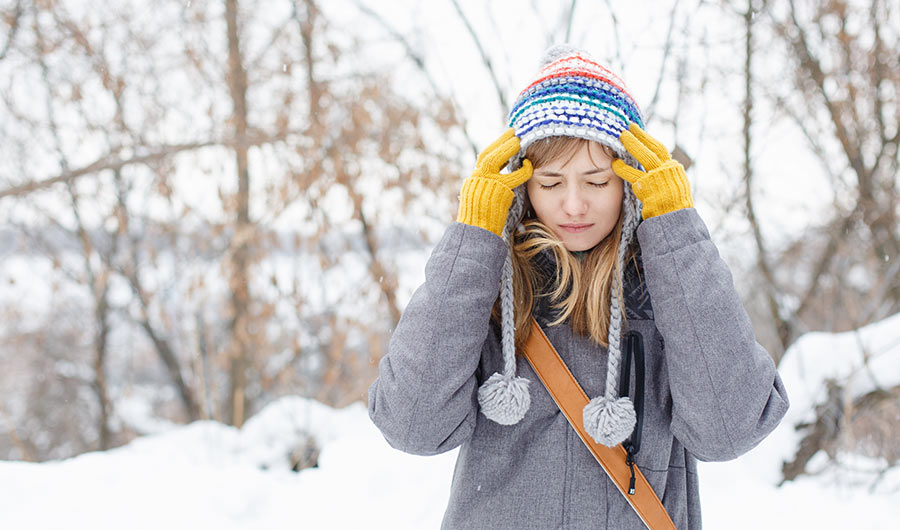Winters have started, Christmas is just a day to go and new year is on the countdown. All of us are excited for this holiday season, aren’t we? But this season often comes with its own sets of illnesses. From flu, respiratory issues to dry skin, winters can be tough for people with weak immunity resulting in common health issues. One of the unexpected problems that invariably affects our well-being in the cold season is winter headaches. There can be many reasons for it.
Causes of headache
One of the leading causes of headaches in the winter season is cold-stimulus headaches. To avoid this, many of our elders cover their heads to avoid cold exposure, and they are right too.
Other than this dehydration, changes in sleep patterns and diet could trigger headaches.
A dip in the temperature can also aggravate headaches due to a rise in barometric pressure and reduction in the duration of sunshine.
A rise in pollens more common in winters precipitates allergic rhinitis triggering headaches.
Carbon monoxide poisoning due to room heaters and closed windows preventing good ventilation is known to cause headaches.
One can develop stress headaches due to a decrease in daylight.
Tips to prevent headaches in winters
1. We can prevent winter headaches by eating well, keeping warm, ensuring good sleep, avoiding excess caffeine and taking care of hydration.
2. Use humidifiers at home and keep indoor humidity between 35 to 50% to avoid dryness.
3. Avoid exposure to cold air. Keep your homes well-ventilated and use exhaust fans to avoid carbon monoxide poisoning.
4. Take quality sleep at night. Do not skip meals and have healthy snacks from time to time.
5. Hydrate yourself well as dehydration could cause headaches. Avoid too much caffeine, tea, alcohol or tobacco.
6. Regular exercise of moderate intensity for 30 minutes like walking, cycling or indoor online workouts will help you feel fit and keep headaches at bay.
7. Avoid the use of monosodium glutamate found in soups to prevent migraine headaches.

 If you are having frequent headaches in winters, here are some tips to prevent this
If you are having frequent headaches in winters, here are some tips to prevent this









.jpeg)




.jpg)





.jpeg)



.jpg)


.jpg)




.jpg)


